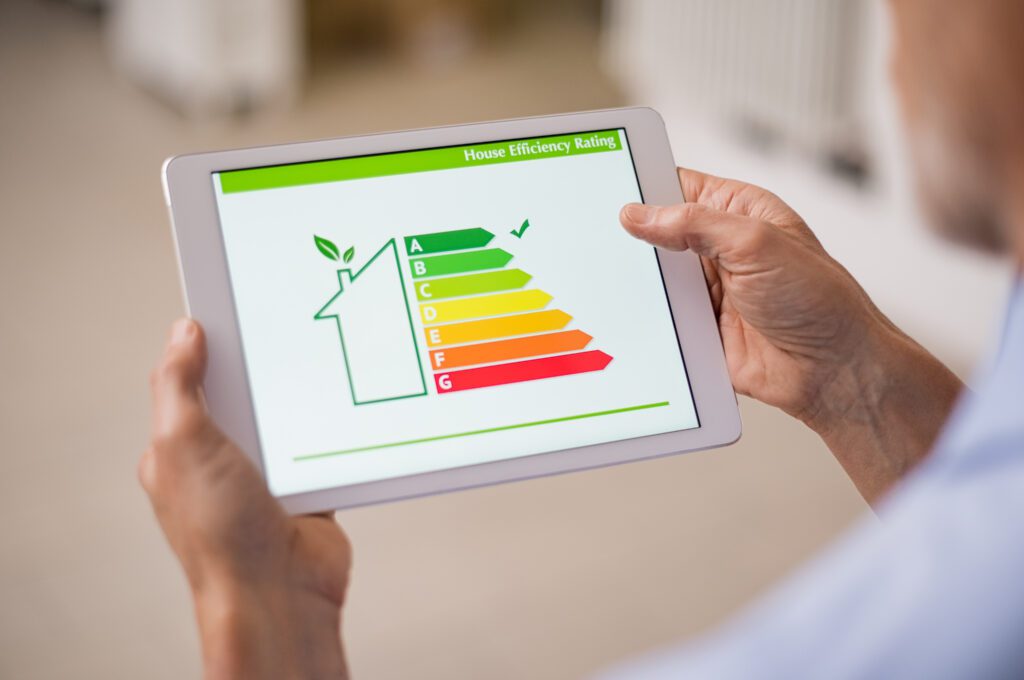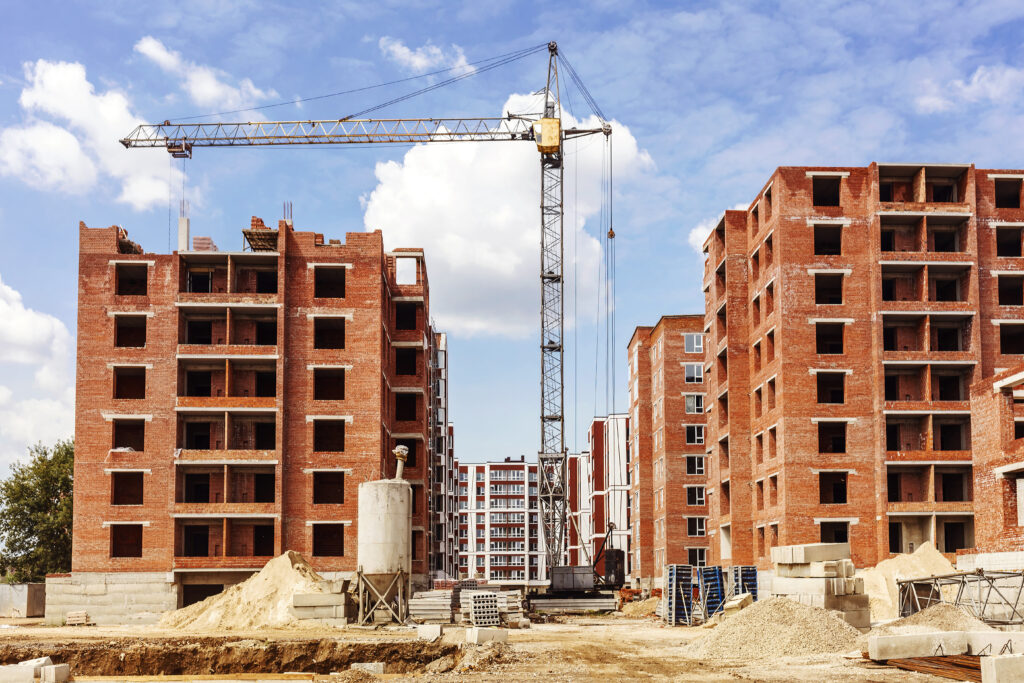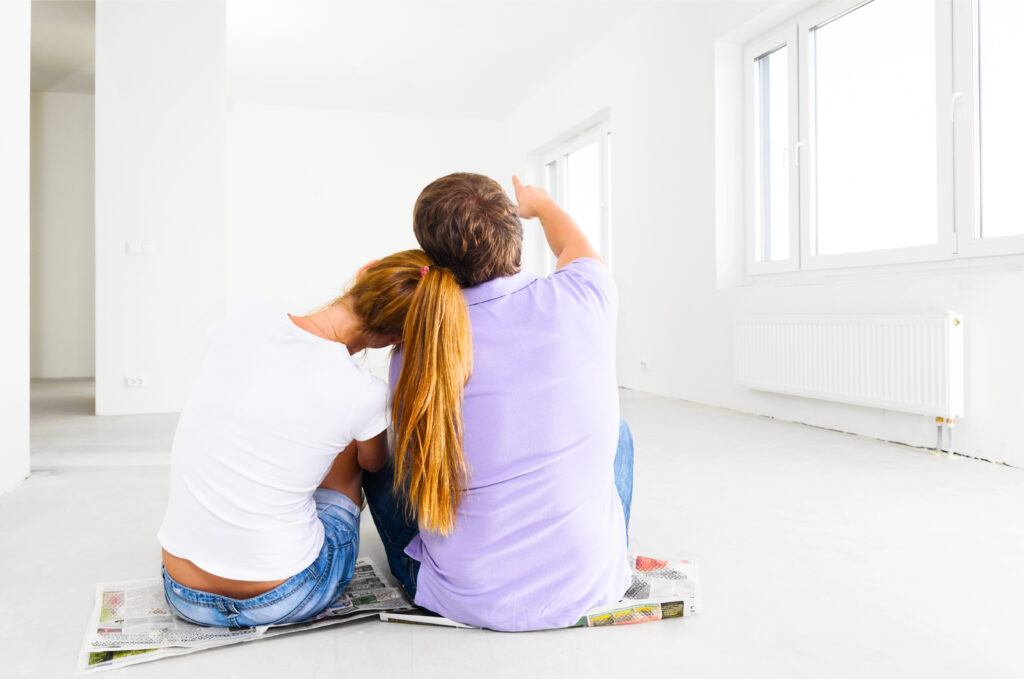If you’re interested in buying a new-build in the Netherlands, you’ll know that it appears to be a daunting task.
But while navigating the home-buying landscape can be scary, it’s all worth it once you’ve finally got those shiny keys in hand.
So, let’s guide you through the process of buying a brand-new home in the Netherlands. 💪
We’re not experts in new-build homes, but Hyde Park is! As one of the biggest construction projects in the Netherlands, Hyde Park will soon be home to more than 3,800 brand-new luxury apartments in Hoofddorp, featuring all the luxurious amenities your heart may desire. 🔑
What counts as a new-build in the Netherlands?
Good question! Generally speaking, a new-build home is a home that still needs to be built or has just recently been finished.
Oftentimes, buying a newly-built house or apartment means you commit to buying the home before the developer starts the construction.
This is because the developer needs to gauge whether enough people are interested in the development, and the contractors need to apply for a building permit.
Alternatively, you might also be able to buy a new-build after construction has already started.

In both cases, the upside is that everything will be brand-spanking-new when you move in — and you’ll be the first person to live there.
But the downside? You may have to wait months, or even years, until your home is ready to be moved into. More on the pros and cons later.
How is buying a new-build different from buying an existing home?
Buying a new-build home is equally exciting as it is confusing. There are many differences between buying an old home vs. a new one. Let’s get into it. 👇
Which is cheaper, an existing home or a new-build?
Ah, the golden question! Unfortunately, the answer isn’t quite that simple, and which option is cheaper can vary on a case-by-case basis.
When you buy a newly-built home instead of an existing one, you don’t have to worry about certain costs, such as transfer tax, the mortgage deed, and the evaluation report.
However, new-builds often have increased costs at the construction stage.

In particular, you’ll likely find yourself having to maintain payments for your current home while also making partial or full payments on your new mortgage.
On top of that, it’s important to consider that your monthly payments on the new-build increase gradually as construction comes close to completion.
Good news! You may be eligible for a so-called bridging loan to help you cover costs while transitioning from one house to another. This temporary mortgage helps bridge the surplus value between the purchase of a new house and the sale of the old one.
Often, new homes are also delivered without a kitchen, bathroom or floors, which is another cost to keep in mind.
The real money-saving with new homes starts after the building is done.
Because newly built properties are usually built with the latest energy requirements in mind, you not only spend less on energy payments but also benefit from lower mortgage interest rates.
On top of that, your new home will be, well, brand new — and you won’t have to spend any money on renovations or maintenance for at least the first few years.

How about the buying process?
Usually, when buying a preexisting house, you put on your boxing gloves and enter the bidding ring. 🥊
Due to the housing shortage in the Netherlands, prospective buyers regularly engage in tough bidding wars, which can result in a significantly higher selling price than the seller initially asked for.
Newly built homes, on the other hand, usually have the advantage of having a fixed selling price — meaning you won’t have to worry about being outbid by someone else.
However, this doesn’t guarantee you’ll score the house your heart is set on. Instead of a bidding war, new-builds often use a lottery system to determine who can buy a home and who can’t. So yes, it can be a question of pure luck. 🍀
How does the mortgage process work for a new-build?
Mortgages for new construction projects work almost the same as for an existing home. Naturally, your first step is to calculate how much you can afford and how much you want to spend.

The key difference regarding mortgages for a new-build is that you will first need to purchase the space it will be built in, and then finance the construction work later on.
That’s why you should remember that your payments will gradually increase as your home approaches completion.
Here’s how the mortgage process works for new-builds:
- You’ll purchase the building ground while holding the remaining funds in a separate bank account.
- You sign the ownership deed at the notary and start your mortgage payments immediately. The first payment from the bank to the notary covers the ground purchase and the preparatory construction work.
- The remaining mortgage amount will be transferred to a building account. This is accessible upon completion of construction milestones, when you’ll receive an invoice from the developer which you then forward to your bank.
Note: When buying a new apartment in the Netherlands, you typically don’t purchase the land the building stands on. Instead, apartments are often sold under Erfpacht (leasehold).
This means you pay a fee to the landowner for the right to use the land, either periodically (ground rent) or as a one-time payment for an extended period.
While your mortgage money is in the bank, you receive interest on it. But, helaas, this is offset by an interest loss you incur during the construction phase (that is, you pay more interest than you receive).
Note that the building account does not cover additional costs such as kitchen, bathroom, or flooring expenses.
Can I buy a new-build in the Netherlands as an international?
The short answer to this question is… it depends.
Whether you’re eligible to get a mortgage as an expat in the Netherlands depends, among other things, on your residency status.

You’re an EU citizen
Are you from an EU country but want to buy a home in the Netherlands? Geen problem.
As an EU citizen, pretty much any Dutch mortgage lender will help you finance your Dutch home without any problems.
You’re not an EU citizen
Not an EU citizen? Then you’re living in the Netherlands on a residence permit, and things are slightly different.
Whether you can get a mortgage in the Netherlands depends on the type of residence permit that you have.
Typically, you’re only eligible for a Dutch mortgage if you live in the Netherlands with a “non-temporary purpose of stay” — that is, if your residence permit is not temporary.
READ MORE | Permits and visas for the Netherlands: ultimate 2024 guide
If you have one of those residence permits, you have quite a few options, and many lenders will be willing to provide up to 100% of the loan-to-value ratio that you would typically be entitled to based on your income.
That being said, even within this category, some people have higher chances of getting a mortgage than others, with highly skilled migrants (Kennismigranten) having the highest chance of getting approved.
Buying a new-build in the Netherlands: the pros and cons
Buying a house in a foreign country is a big deal — and naturally, you want to be sure of your decision when you finally bite the bullet.
So, what are the pros and cons of buying a new-build in the Netherlands?

The benefits of buying a new-build in the Netherlands
The advantages of buying a new-built home go beyond getting to make one too many new Pinterest boards. 😉 Consider these, for example:
- You pay a fixed price. Overbidding? We don’t know her. New homes in the Netherlands are usually sold at a fixed price, saving you the stress of bidding wars and worrying about being unable to afford your dream home.
- It’s yours to customise. Sure, old homes are charming, but do you really want that sink in your bedroom? Exactly. A new-build gives you all the freedom when it comes to decor and layout decisions.
- You’ll have a great energy label. Since new homes usually meet the latest environmental requirements, your home will be environmentally friendly while also scoring you a lower interest rate on your mortgage. Win-win!
- Everything is new, meaning your maintenance and renovation costs will be low to non-existent in the first few years.
- Property value goes up quickly. If you buy a new-build in a good or developing neighbourhood, the value of your property is likely to increase quickly.
Got your heart set on buying a new-build but not sure where to look? Try Hyde Park! Hyde Park’s various experts are equipped to help you through every step of your home-buying journey — from making interior design choices to financing your mortgage.
The disadvantages of buying a new-build in the Netherlands
Of course, not everything is sunshine and stroopwafels — and even new homes have drawbacks…
- You’ll have to be patient. New-builds are bought while construction is still ongoing or has yet to start, meaning you might have to wait a while before moving in.
- You’ll likely be paying extra. While waiting for your home to be built, you may have to pay your old rent/mortgage and your new mortgage, plus interest.
- You have to get lucky. Many new-build projects use a lottery system to decide who can buy a home. This means that even if you fulfil all the requirements, you might still miss out on your dream home.
- You might feel like you’re living in a construction lot for a while. Once you move into your new home, you’ll likely be surrounded by construction of other buildings and amenities.
How to choose a new-build in the Netherlands that’s right for you
Last but certainly not least, you’re probably interested in how you can find a new-build project that fits your wishes and needs.
Natuurlijk, what home you choose to buy is highly personable, but some aspects can help you decide. Consider, for example:
- The location of the home,
- Your financial situation,
- The reputation of the real estate developer,
- The quality of construction of the building,
- The completion timeline,
- The energy rating,
- The resale potential.
From seeing the developer’s vision come to life to creating your perfect dream space, buying a new-build in the Netherlands is an exciting journey. Sit back, enjoy the ride and success! 🙌
Which would you choose: an old house or a new-build? Tell us your thoughts in the comments below!
